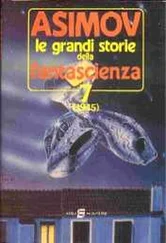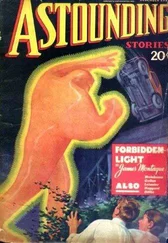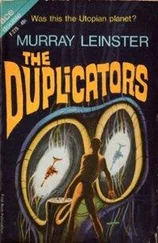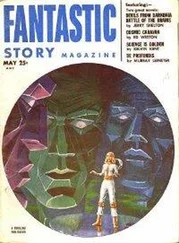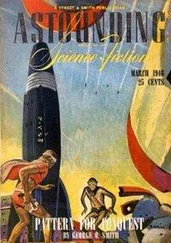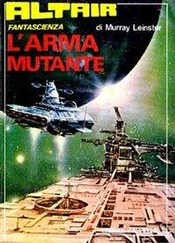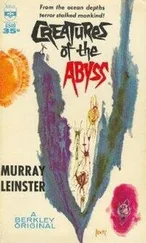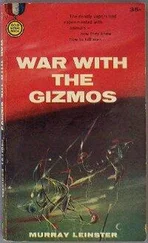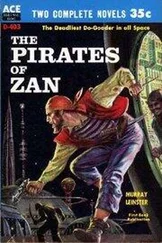Murray Leinster - The Aliens
Здесь есть возможность читать онлайн «Murray Leinster - The Aliens» весь текст электронной книги совершенно бесплатно (целиком полную версию без сокращений). В некоторых случаях можно слушать аудио, скачать через торрент в формате fb2 и присутствует краткое содержание. Год выпуска: 2007, Жанр: Космическая фантастика, на английском языке. Описание произведения, (предисловие) а так же отзывы посетителей доступны на портале библиотеки ЛибКат.
- Название:The Aliens
- Автор:
- Жанр:
- Год:2007
- ISBN:нет данных
- Рейтинг книги:3 / 5. Голосов: 1
-
Избранное:Добавить в избранное
- Отзывы:
-
Ваша оценка:
- 60
- 1
- 2
- 3
- 4
- 5
The Aliens: краткое содержание, описание и аннотация
Предлагаем к чтению аннотацию, описание, краткое содержание или предисловие (зависит от того, что написал сам автор книги «The Aliens»). Если вы не нашли необходимую информацию о книге — напишите в комментариях, мы постараемся отыскать её.
The Aliens — читать онлайн бесплатно полную книгу (весь текст) целиком
Ниже представлен текст книги, разбитый по страницам. Система сохранения места последней прочитанной страницы, позволяет с удобством читать онлайн бесплатно книгу «The Aliens», без необходимости каждый раз заново искать на чём Вы остановились. Поставьте закладку, и сможете в любой момент перейти на страницу, на которой закончили чтение.
Интервал:
Закладка:
THE ALIENS

BY MURRAY LEINSTER
Illustrated by van Dongen
At 04 hours 10 minutes, ship time, the Niccola was well inside the Theta Gisol solar system. She had previously secured excellent evidence that this was not the home of the Plumie civilization. There was no tuned radiation. There was no evidence of interplanetary travel—rockets would be more than obvious, and a magnetronic drive had a highly characteristic radiation-pattern—so the real purpose of the Niccola’s voyage would not be accomplished here. She wouldn’t find out where Plumies came from.
There might, though, be one or more of those singular, conical, hollow-topped cairns sheltering silicon-bronze plates, which constituted the evidence that Plumies existed. The Niccola went sunward toward the inner planets to see. Such cairns had been found on conspicuous landmarks on oxygen-type planets over a range of some twelve hundred light-years. By the vegetation about them, some were a century old. On the same evidence, others had been erected only months or weeks or even days before a human Space Survey ship arrived to discover them. And the situation was unpromising. It wasn’t likely that the galaxy was big enough to hold two races of rational beings capable of space travel. Back on ancient Earth, a planet had been too small to hold two races with tools and fire. Historically, that problem was settled when Homo sapiens exterminated Homo neanderthalis . It appeared that the same situation had arisen in space. There were humans, and there were Plumies. Both had interstellar ships. To humans, the fact was alarming. The need for knowledge, and the danger that Plumies might know more first, and thereby be able to exterminate humanity, was appalling.
Therefore the Niccola . She drove on sunward. She had left one frozen outer planet far behind. She had crossed the orbits of three others. The last of these was a gas giant with innumerable moonlets revolving about it. It was now some thirty millions of miles back and twenty to one side. The sun, ahead, flared and flamed in emptiness against that expanse of tinted stars.
Jon Baird worked steadily in the Niccola’s radar room. He was one of those who hoped that the Plumies would not prove to be the natural enemies of mankind. Now, it looked like this ship wouldn’t find out in this solar system. There were plenty of other ships on the hunt. From here on, it looked like routine to the next unvisited family of planets. But meanwhile he worked. Opposite him, Diane Holt worked as steadily, her dark head bent intently over a radar graph in formation. The immediate job was the completion of a map of the meteor swarms following cometary orbits about this sun. They interlaced emptiness with hazards to navigation, and nobody would try to drive through a solar system without such a map.
Elsewhere in the ship, everything was normal. The engine room was a place of stillness and peace, save for the almost inaudible hum of the drive, running at half a million Gauss flux-density. The skipper did whatever skippers do when they are invisible to their subordinates. The weapons officer, Taine, thought appropriate thoughts. In the navigation room the second officer conscientiously glanced at each separate instrument at least once in each five minutes, and then carefully surveyed all the screens showing space outside the ship. The stewards disposed of the debris of the last meal, and began to get ready for the next. In the crew’s quarters, those off duty read or worked at scrimshaw, or simply and contentedly loafed.
Diane handed over the transparent radar graph, to be fitted into the three-dimensional map in the making.
“There’s a lump of stuff here,” she said interestedly. “It could be the comet that once followed this orbit, now so old it’s lost all its gases and isn’t a comet any longer.”
At this instant, which was 04 hours 25 minutes ship time, the alarm-bell rang. It clanged stridently over Baird’s head, repeater-gongs sounded all through the ship, and there was a scurrying and a closing of doors. The alarm gong could mean only one thing. It made one’s breath come faster or one’s hair stand on end, according to temperament.
The skipper’s face appeared on the direct-line screen from the navigation room.
“ Plumies? ” he demanded harshly. “ Mr. Baird! Plumies? ”
Baird’s hands were already flipping switches and plugging the radar room apparatus into a new setup.
“There’s a contact, sir,” he said curtly. “No. There was a contact. It’s broken now. Something detected us. We picked up a radar pulse. One.”
The word “one” meant much. A radar system that could get adequate information from a single pulse was not the work of amateurs. It was the product of a very highly developed technology. Setting all equipment to full-globular scanning, Baird felt a certain crawling sensation at the back of his neck. He’d been mapping within a narrow range above and below the line of this system’s ecliptic. A lot could have happened outside the area he’d had under long-distance scanning.
But seconds passed. They seemed like years. The all-globe scanning covered every direction out from the Niccola . Nothing appeared which had not been reported before. The gas-giant planet far behind, and the only inner one on this side of the sun, would return their pulses only after minutes. Meanwhile the radars reported very faintfully, but they only repeated previous reports.
“No new object within half a million miles,” said Baird, after a suitable interval. Presently he added: “Nothing new within three-quarter million miles.” Then: “Nothing new within a million miles ...”
The skipper said bitingly:
“ Then you’d better check on objects that are not new! ” He turned aside, and his voice came more faintly as he spoke into another microphone. “ Mr. Taine! Arm all rockets and have your tube crews stand by in combat readiness! Engine room! Prepare drive for emergency maneuvers! Damage-control parties, put on pressure suits and take combat posts with equipment! ” His voice rose again in volume. “ Mr. Baird! How about observed objects? ”
Diane murmured. Baird said briefly:
“Only one suspicious object, sir—and that shouldn’t be suspicious. We are sending an information-beam at something we’d classed as a burned-out comet. Pulse going out now, sir.”
Diane had the distant-information transmitter aimed at what she’d said might be a dead comet. Baird pressed the button. An extraordinary complex of information-seeking frequencies and forms sprang into being and leaped across emptiness. There were microwaves of strictly standard amplitude, for measurement-standards. There were frequencies of other values, which would be selectively absorbed by this material and that. There were laterally and circularly polarized beams. When they bounced back, they would bring a surprising amount of information.
They returned. They did bring back news. The thing that had registered as a larger lump in a meteor-swarm was not a meteor at all. It returned four different frequencies with a relative-intensity pattern which said that they’d been reflected by bronze—probably silicon bronze. The polarized beams came back depolarized, of course, but with phase-changes which said the reflector had a rounded, regular form. There was a smooth hull of silicon bronze out yonder. There was other data.
“It will be a Plumie ship, sir,” said Baird very steadily. “At a guess, they picked up our mapping beam and shot a single pulse at us to find out who and what we were. For another guess, by now they’ve picked up and analyzed our information-beam and know what we’ve found out about them.”
Читать дальшеИнтервал:
Закладка:
Похожие книги на «The Aliens»
Представляем Вашему вниманию похожие книги на «The Aliens» списком для выбора. Мы отобрали схожую по названию и смыслу литературу в надежде предоставить читателям больше вариантов отыскать новые, интересные, ещё непрочитанные произведения.
Обсуждение, отзывы о книге «The Aliens» и просто собственные мнения читателей. Оставьте ваши комментарии, напишите, что Вы думаете о произведении, его смысле или главных героях. Укажите что конкретно понравилось, а что нет, и почему Вы так считаете.

